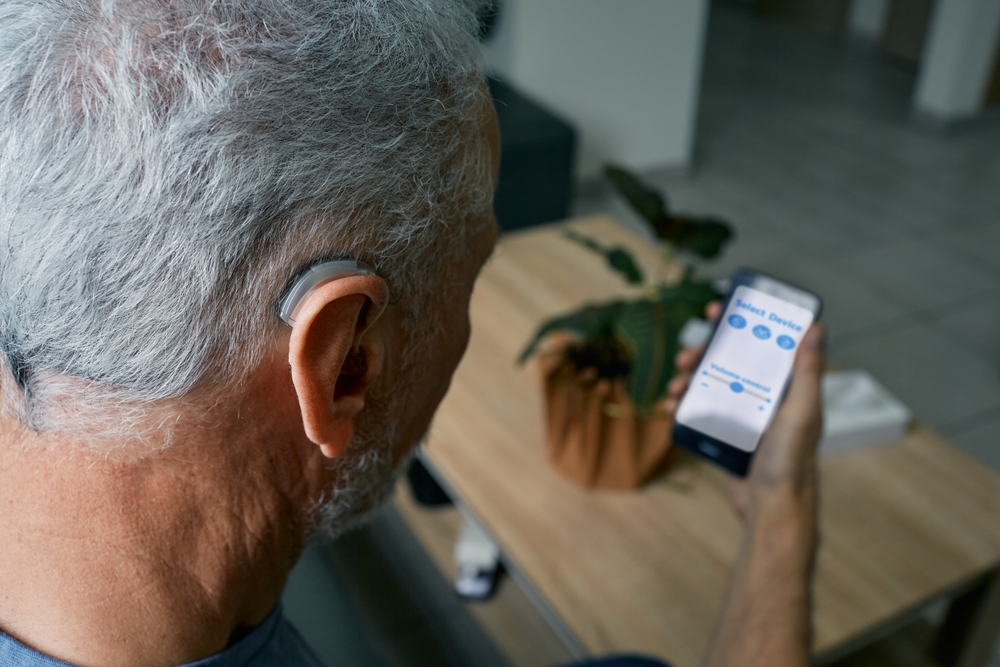The corner display at the pharmacy is what gets you thinking about it. There’s a stack of hearing devices, all arranged neatly on one of those sales racks. And you start thinking: jeeze, maybe your hearing is starting to go a bit. You’ve had to turn up the volume on your favorite podcast during your commute–not once, but twice. Just this month.
So you walk over to the display and pick one up, scanning the package for information. An over-the-counter hearing device doesn’t overly familiar to you; there’s a nagging sensation in the back of your mind, urging you to do a little research before you make a purchase. Because the hearing device in your hand looks too simple, the price is too low.
It’s those red flags that make you think, can you really buy a hearing aid over the counter?
How Real Are Over-the-Counter Hearing Aids?
If you’re a little confused by the notion of over-the-counter hearing aids, you aren’t alone. When you walk into a pharmacy today, the vast majority of the “over-the-counter” options you see are devices called Personal Sound Amplification Products (or PSAPs). Now, PSAPs may look a lot like hearing aids, but they’re designed for people with relatively normal hearing levels.
Where a hearing aid uses sophisticated technology to specifically treat hearing loss, a PSAP is a thoroughly simple device that just makes everything louder. That makes these personal amplification devices notoriously ineffective for those who are suffering from hearing loss or tinnitus. The problem is that the distinction between PSAPs and hearing aids isn’t always well understood by the general public.
Coming Soon
For consumers, that confusion is only likely to grow, as a new U.S. law passed in 2017 made it permissible for hearing aid manufacturers to sell some models in an over-the-counter capacity. None of those products have made it to market just yet (it’s still nothing but PSAPs at your local pharmacy).
What to Know When Shopping Over-the-Counter Hearing Devices
So, if you’re going to peruse these over-the-counter hearing options, there are a few things you should keep in mind while you’re doing your shopping:
- Pay attention to markings: Over-the-counter hearing aids will still be tightly regulated by the US Food and Drug Administration. As such, every pair sold in an over-the-counter capacity will have have standardized labels. These labels will convey incredibly important information (such as the power of the device, how to calibrate your hearing aids, and what you might expect from your experience), so make sure you do your reading before you buy.
- Mild-to-moderate only: Over-the-counter hearing aids will be developed and sold only for mild to moderate hearing loss. If you have severe hearing loss (and you’re aware of it), you’ll need to see a hearing specialist for your hearing aid no matter what. This is because anyone with severe hearing loss will need more individualized treatment options and more powerful hearing aids.
- Return policies will vary: Unlike hearing aids sold through hearing specialists (that often have a free trial period) over-the-counter hearing aids will be sold via third party vendors (such as your local pharmacy). It’ll be important to make sure you know the return and exchange policy of the device. Your first pair of hearing aids won’t always be your best pair of hearing aids. The fit or style could be just off enough to make them uncomfortable, for example.
Getting Answers to Your Questions
So, let’s say instead of walking into your pharmacy tomorrow, you walk in two years from now and you see actual over-the-counter hearing aids–not PSAPs. There are still some reasons why you might want to hesitate before purchasing a hearing aid in this way.
Even though over-the-counter purchases might be convenient, there are some profound benefits to going through the process with a hearing specialist instead:
- A hearing specialist can help you find just the right fit for your hearing aids
- Hearing specialists can help you identify the right model for your individual needs.
- Calibration is incredibly important to getting your hearing aids to function at peak efficiency, and a hearing specialist will work with you to ensure your device is calibrated to your needs.
No matter where you purchase your hearing devices, you don’t have to go through the process alone. Having someone to walk you through the process can ensure successful treatment in the long-term. Finding the right treatment is your goal.


